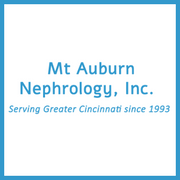
Kidney stones are small deposits of salts and minerals that form in the kidneys. Most are made of calcium or uric acid; less commonly, they can be comprised of the mineral struvite or the amino acid cysteine. Once the stones form, they might remain in the kidneys and present no problems, or they can pass through the urinary tract. In the latter case, the stones will usually produce some telltale symptoms, three of which are discussed in more detail below.
A Guide to Kidney Stone Symptoms
1. Acute, Cramp-Like Pain
The most noticeable sign of kidney stones is searing, intense pain. Discomfort typically starts when the stone enters the ureter, causing a blockage that creates pressure within this very narrow passage. T
he pressure activates the nerves in the area, which then produce severe, cramp-like pain. Pain often begins in the back and side but will soon expand to the stomach and groin region. Most people experience the discomfort in waves that come and go, lasting for up to a few minutes each time.
2. An Urgent Need to Urinate
The ureter is the channel through which urine flows from the kidneys into the bladder. When it is blocked by a stone, urine cannot pass through.
 You will usually feel an urgent need to urinate, but little or nothing will come out. Like the extreme pain of kidney stones, the unending urge to urinate can be life-limiting, and you'll likely find yourself trying to go to the bathroom—a lot, and without much success.
You will usually feel an urgent need to urinate, but little or nothing will come out. Like the extreme pain of kidney stones, the unending urge to urinate can be life-limiting, and you'll likely find yourself trying to go to the bathroom—a lot, and without much success.
3. Changes in Urine
If you can pass urine, you might notice that the kidney stones will have changed its typical appearance and odor. First, however, you'll note a burning sensation when urinating, not unlike the sensation of a urinary tract infection.
The urine may have a reddish or brownish hue, an indicator of the presence of blood. It could also be cloudy or unusually unpleasant smelling, either of which can mean that, along with the stone, there may be a kidney infection or a UTI.
If you suspect you have a kidney stone, always see a doctor as soon as possible. Mt Auburn Nephrology has been serving patients throughout the Greater Cincinnati, OH, area since 1993. They are a trusted nephrology practice offering testing and treatment for kidney diseases, acute renal failure, hypertension, and more. Call (513) 841-0222 or visit them online to schedule an appointment.
About the Business
Have a question? Ask the experts!
Send your question

